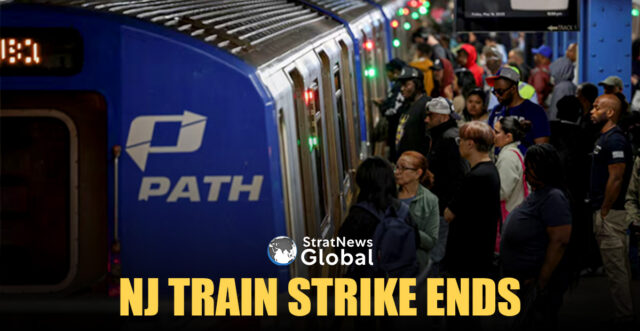New Jersey Transit trains are set to resume service on Tuesday after the NJ rail agency reached a tentative deal on Sunday with striking rail engineers over wage increases, bringing an end to a three-day work stoppage that disrupted travel for tens of thousands of New York-bound commuters.
The statewide rail strike, the first to hit NJ Transit in more than 40 years, had begun just after midnight on Thursday. The third-largest transit system in the U.S., it provides more than 700,000 passenger trips a day on average across its train, light rail and bus lines.
The Brotherhood of Locomotive Engineers and Trainmen, which represents 450 NJ Transit engineers who drive the agency’s commuter trains, initially said its members would return to work on Monday. But NJ Transit said in a statement that train service would not resume until Tuesday to give the agency time to inspect and prepare tracks, rail cars and other infrastructure.
Strike Contingency Plan
NJ Transit will implement its strike contingency plan on Monday, increasing bus service and chartering private buses to ferry passengers from four satellite lots. Officials urged commuters to work from home if possible, noting that the enhanced bus service can still only accommodate a fraction of train riders.
Details of the deal were not immediately released. The agreement still requires the approval of a majority of the union’s members, who rejected an earlier deal last month.
“This is a good result for labour, it’s a good result for NJ Transit, it’s a good result for our taxpayers and commuters,” Governor Phil Murphy said at a news conference to announce the deal.
“The only real issue was wages and we were able to reach an agreement that boosts hourly pay beyond the proposal rejected by our members last month and beyond where we were when NJ Transit’s managers walked away from the table Thursday evening,” Tom Haas, the union’s NJ Transit chairman, said in a statement.
The two sides had blamed each other for the walkout after last-minute talks on Thursday broke down without an accord.
Murphy and NJ Transit officials had said the agency could not afford to meet the union’s pay demands, while the union had said it was simply aiming to bring its members’ salaries in line with those of engineers at other commuter systems in the region.
(With inputs from Reuters)





